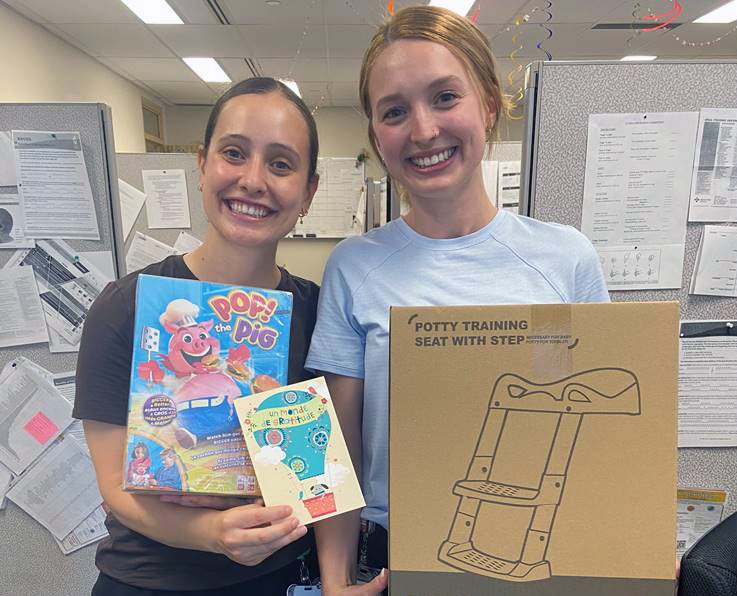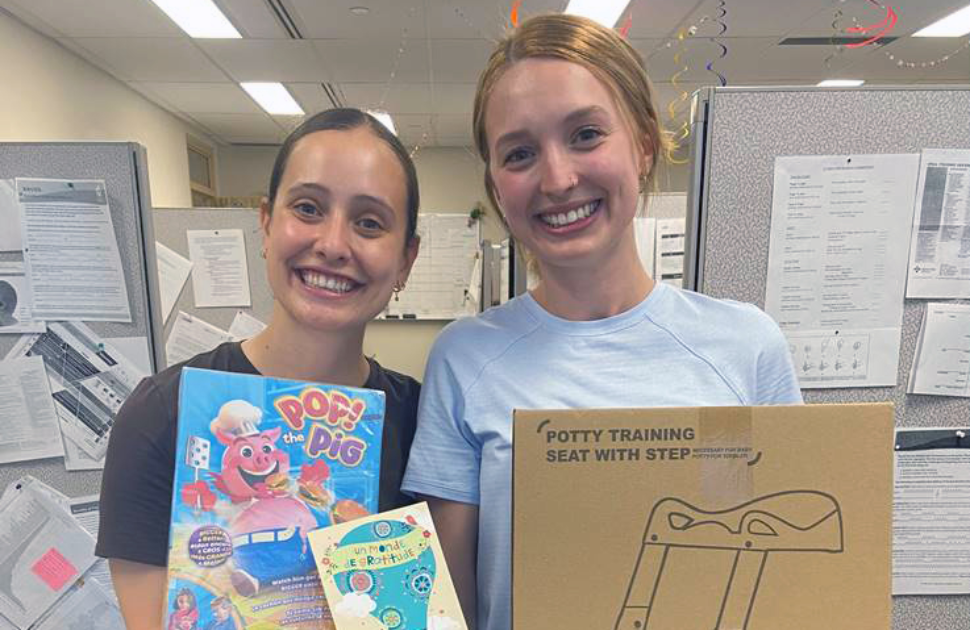
For CHEO staff, Arielle Roy and Kayla Dudas, a small step for their patients represents a major sign of progress.
Roy, an inpatient physiotherapist, and Dudas, an inpatient occupational therapist (OT), are members of a team that helps children admitted to CHEO who require physical rehabilitation. In one recent case, a three-year-old girl was admitted with a condition that left her immobile. She could no longer crawl—let alone walk.
Gradually, during several sessions lasting from one to two hours, the pair worked with the girl to improve her mobility, each separately addressing fine motor and gross motor delays.
They focused on simple actions such as moving her arm.
“It’s such a big deal because it’s something she couldn’t do for a while, and then she’s able to do it again,” said Dudas.
Most families aren’t quite sure what to expect when they arrive at CHEO, according to Roy and Dudas, and each child or youth shows different signs of progress.
Once families begin to understand the rehabilitation process, each milestone brings a sense of relief.
“It’s really amazing to see when the kid is proud of themselves, and the parents are just so happy,” said Dudas.
In this case, the girl’s parents cried when they saw her crawling for the first time since she was admitted, said Roy.
The relationship between families and their rehabilitation team fosters a strong connection. Families play a crucial role as they learn ways to help a child recover.
In this case, the girl’s stay at CHEO lasted 10 days. Her family was so happy with the care received and progress made, they delivered a game and potty trainer as a gift of thanks to CHEO.
Their daughter used these two tools during her rehabilitation, and at home, and therapists are already using them to help other children who require physical therapy.
Dudas and Roy were grateful for the gifts. They were even happier to see the girl go home with a renewed outlook and regained strength.
“We work with [families] so closely that we’re almost part of the family,” said Roy.
“You develop a relationship. They trust us and we know them,” added Dudas.
That trust is vital to providing the best care to children and youth. Trust is also a cornerstone of teamwork for Roy and Dudas. A strong working relationship allows the PTs and OTs to flourish as they bounce ideas off one another and combine overlapping knowledge, while respecting each other’s perspectives, to provide the best care.
“I couldn’t do my job without an OT,” said Roy, the physiotherapist.





